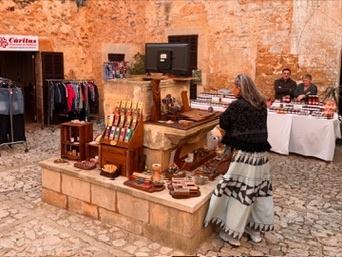How do local government policies in Mallorca support the use of the Catalan language today?
Similar Topics
local government policies
catalan language mallorca
official languages mallorca
catalan education policies
bilingual environment mallorca
cultural support catalan
catalan media mallorca
linguistic diversity policies
Local government policies in Mallorca actively promote the use of the Catalan language, reflecting its status as one of the island's official languages alongside Spanish. The Balearic Islands government, which includes Mallorca, implements measures designed to encourage the everyday use of Catalan in both public life and education. Public institutions are required to provide services and official documentation in Catalan, ensuring the language remains accessible and visible to residents and visitors alike. This policy also extends to signage, media, and cultural programs, helping to maintain the language’s prominence across various aspects of daily life.
Educational policies on the island emphasize Catalan as a core subject, often using it as the primary language of instruction in schools to support early and consistent language acquisition among children. These efforts aim to foster a strong bilingual environment where residents grow up equally comfortable in Catalan and Spanish. Additionally, local government funding supports cultural events, festivals, and literary initiatives that celebrate Catalan heritage and language, further ingraining it in the community’s identity. Through these combined initiatives, Mallorca not only preserves Catalan as a living language but also promotes it as a vital part of local culture and communication.
Furthermore, local media outlets often produce content in Catalan, encouraged by regional policies that prioritize linguistic diversity. This includes radio broadcasts, newspapers, and digital platforms that inform and entertain residents in their native tongue. Tourism-related operations, while also accommodating Spanish and other languages, frequently incorporate Catalan, signaling respect for the island’s linguistic traditions. Together, these local government policies create an environment where Catalan remains a dynamic and integral part of Mallorca’s social fabric, balancing tradition with modern-day usage.
Educational policies on the island emphasize Catalan as a core subject, often using it as the primary language of instruction in schools to support early and consistent language acquisition among children. These efforts aim to foster a strong bilingual environment where residents grow up equally comfortable in Catalan and Spanish. Additionally, local government funding supports cultural events, festivals, and literary initiatives that celebrate Catalan heritage and language, further ingraining it in the community’s identity. Through these combined initiatives, Mallorca not only preserves Catalan as a living language but also promotes it as a vital part of local culture and communication.
Furthermore, local media outlets often produce content in Catalan, encouraged by regional policies that prioritize linguistic diversity. This includes radio broadcasts, newspapers, and digital platforms that inform and entertain residents in their native tongue. Tourism-related operations, while also accommodating Spanish and other languages, frequently incorporate Catalan, signaling respect for the island’s linguistic traditions. Together, these local government policies create an environment where Catalan remains a dynamic and integral part of Mallorca’s social fabric, balancing tradition with modern-day usage.
🧩 Related Questions
Related Question
What other fruits are commonly found alongside prickly pears in Mallorca?
Related Question
How do local saints’ celebrations in Mallorca offer travelers a unique perspective on Catalan linguistic identity?
Related Question
How can visitors respect private land ownership in rural Mallorca while exploring the countryside?
